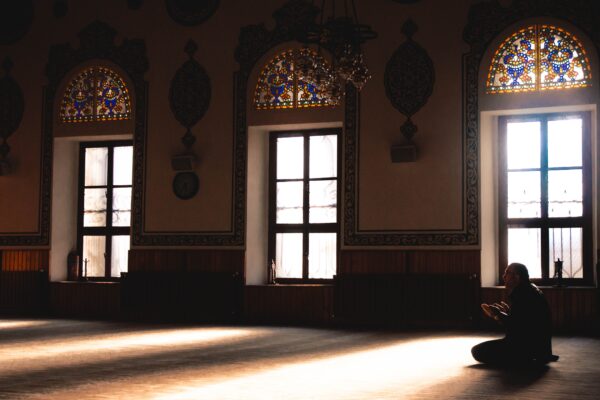The Holy Quran, far from being a dry legal text, is one which engages with its readers and maximises their reading experience. There are a number of literary tools which are used to awaken various experiences in the readers’ souls. One of the most powerful literary tools in my opinion is the call (nidaa). The calls are used to attract the readers’ attention to a fresh sermon in a given a chapter. By its very presence, it also demarcates various sections within a chapter. With such breakdowns, chapters become more digestible and thus easier to formulate. A great case in point is Chapter 2 (Al-Baqarah) which has eighteen calls!
In this essay, we focus on calls to humankind. This is expressed in the text as ‘yaa ayyuha an-naas’ (“O mankind” or “o people”). This call appears very early in the text, in Chapter 2 Verse 21. What does this tell us about the Quran itself? That it begins its discourse by addressing people in general, not any particular tribe. In that, we can say that the Quran is universal and in a way, humanist. In this call, the Quran calls upon mankind to serve Allah who created us so that we may preserve ourselves (2/21). He then tells us about our fundamental existence – the skies above us, the earth below and how we sustain ourselves (2/22). This is an inescapable fact and we cannot bring any discourse like it (2/23). Within this call we also find the first narrative in the holy Quran – the story of Adam (2/30). In this narrative, we find the basic human condition. The forces of the universe submit to Adam but he falls from the state of bliss due to him and companion being alienated from each other. Thus begins the fundamental human condition which we all experience.
Chapter 2 has another call to humankind in Verse 168, From here we can see that this chapter can be broken down into two essential stages in humanity’s evolution. This is why it has two calls to humankind in two verses over a hundred and forty verses apart. In the second call to humankind (Vs 168), it talks about consumption. All human beings consume and it is important that we do so properly.
O mankind, eat from whatever is on earth [that is] lawful and good and do not follow the footsteps of Satan. Indeed, he is to you a clear enemy.
(Quran 2:168)
People are also told to follow current revelation and not blindly follow their ancestors taught them (Vs 170). The final verse in this short passage tells us about shutting off the process of thought completely (Vs 171).
The above are the two calls to humankind in Chapter 2. The next call to humankind is in Chapter 4 in the opening verse itself (4/1). This sets the tone for the entire chapter as the social programme of mankind – the objective of which is to make the entire people mobile and independent.
“O mankind, fear your Lord, who created you from one soul and created from it its mate and dispersed from both of them many men and women. And fear Allah , through whom you ask one another, and the wombs. Indeed Allah is ever, over you, an Observer.
(Quran 4:1)
Interestingly, towards the end of the chapter, not one but two calls to humankind! The first is Vs 170 which neatly summarises the chapter so far, saying that the messenger has come with the truth. The second call states that burhan or irrefutable proof has come. This shows that the system propounded in Chapter 4 is that of the messenger and the proof of the truth of the Quran.
Calls to humankind are few after this point. Chapter 10 has one such call in Vs 57, after a lengthy exposition on man’s position in the world vis-à-vis his relationship with the Quran. The call states that a sermon has come as well as a healing for the chests. Chapter 22 interestingly begins with a call to humankind and has another one in verse 5. The first verse of the chapter talks about the coming of the system of peace and verse 5 talks about the wonder of creation. There is a third call in verse 73 too, almost at the end of the chapter. This last call also talks about creation and how mankind cannot produce a similar creation. Why are there three calls to human in Chapter 22? Perhaps because the system of peace is most relevant to mankind’s own needs. The same may be asked of Chapter 35 which also has three calls to human (In Verses 3, 5 and 15), despite being a relatively shorter chapter.
The final call to humankind is perhaps the most well-known. It is Chapter 49, verse 13 which goes:
“O mankind, indeed We have created you from male and female and made you peoples and tribes that you may know one another. Indeed, the most noble of you in the sight of Allah is the most righteous of you. Indeed, Allah is the All-Knowing, All-Aware.”
This verse perhaps gives humankind our final philosophy – that of diversity. We are to remember that Allah created us from a single pair and made us various lineages and currencies (things we find acceptable). Our task therefore is to recognize each other and operate respectfully.





